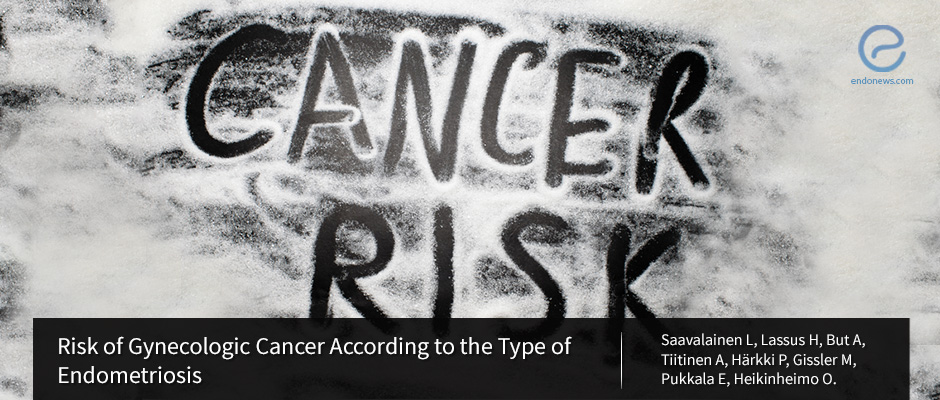Link Between Type of Endometriosis and Cancer
Jun 26, 2018
Could the type of endometriosis a woman had, determine her risk of developing cancer?
Key Points
Highlights:
- The type of endometriosis a woman had could help predict whether she is more likely to develop gynecologic cancer.
Importance:
- Endometriosis management would be closer to perfect if we can predict the risk of gynecologic cancer in the long term.
What's done here:
- Researchers conducted a population-based study in nearly 50,000 women who had endometriosis surgery between 1987-2012 in Finland.
Key results:
- Endometriosis is associated with an increased risk of ovarian cancer
- This is especially the case with endometrioid and clear cell histologic type and to a lesser extent with serous type.
- The risk of ovarian cancer is highest among women with ovarian endometriosis, especially for endometrioid and clear cell ovarian cancer.
- The overall risk of ovarian cancer is not increased among women with peritoneal and deep infiltrating endometriosis.
- The risk of endometrial cancer is not higher in women with any type of endometriosis.
Limitations
- This is a population-based association study and does not contain information about the direct link between endometriosis and gynecologic cancer.
- The study was conducted in a single country and may not represent a worldwide association between endometriosis and gynecologic cancer.
Lay Summary
The type of endometriosis a woman has could determine her risk of gynecologic cancer, according to a study published in the journal Obstetrics & Gynecology.
This is important because it means that those women who are at a higher risk of developing gynecologic cancer could be followed more closely and start being treated as soon as possible if need be.
In order to identify the potential link between the type of endometriosis and the risk of gynecologic cancer, a team of researchers in Finland conducted a population-based study in nearly 50,000 women with surgically verified endometriosis between 1987 and 2012.
Most women (46.5 percent) had ovarian endometriosis. This was followed by peritoneal endometriosis (40.4 percent of all women). Only 4.75 percent of women had deep infiltrating endometriosis. The researcher also obtained information about gynecologic cancers from the Finnish Cancer Registry.
They found that endometriosis was associated with an increased risk of ovarian cancer when endometriosis was of endometrioid and clear cell histological type. When endometriosis was of the serous type, the risk of ovarian cancer was also elevated but to a lesser extent.
The risk of ovarian cancer was highest among women with ovarian endometriosis, especially for endometrioid and clear cell ovarian cancer, occurring on average five to ten years after the initial endometriosis surgery.
Peritoneal and deep infiltrating endometriosis did not seem to increase the overall risk of ovarian cancer. However, peritoneal endometriosis was associated with a two-fold increase in the risk of endometrioid histology.
The risk of endometrial cancer was not increased in any of the women.
Overall, the researchers calculated that women with endometriosis had a 0.2 percent higher risk of developing ovarian cancer within 10 years of having had endometriosis surgery.
“Acknowledging these risks is important when planning long-term management of women with endometriosis,” the researchers wrote.
Research Source: https://www.ncbi.nlm.nih.gov/pubmed/29742675
gynecologic cancer endometriosis type population study

